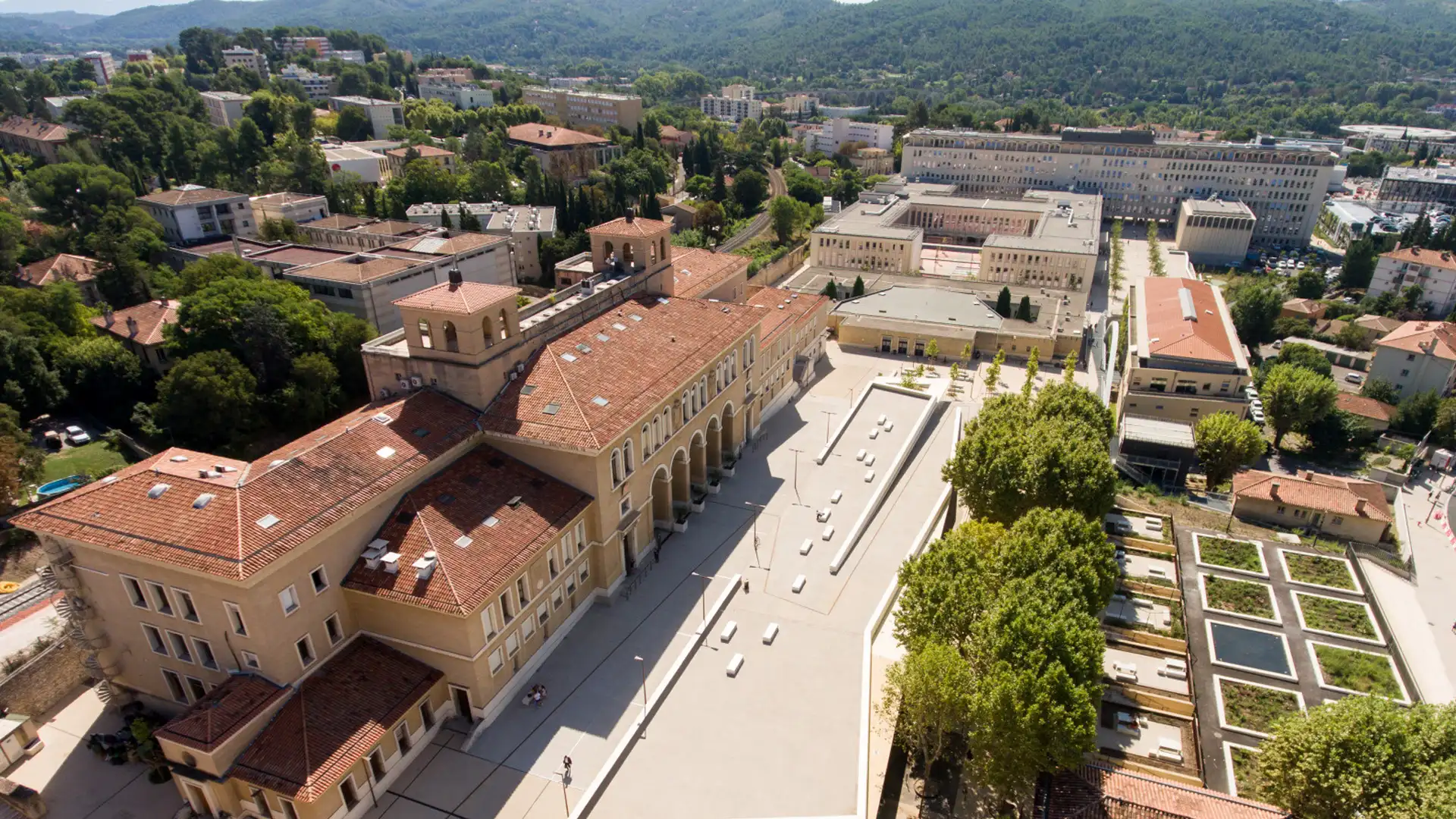EFQM on university benches

Developed in France by the AFNOR group, the EFQM (European Foundation for Quality Management) model is of interest to organizations wishing to structure and signal their approach to excellence. At the end of March 2025, AFNOR and the EFQM Foundation agreed to extend their scope of action to French-speaking Africa. Similarly, a rapid diagnostic service, Focus EFQM, is in the starting blocks for organizations certified by AFNOR Certification . This is an opportunity to see the approach meet with a favorable response in the field, as at the University of Aix-Marseille (Bouches-du-Rhône).
62 orientations grouped into 11 ambitions
This approach was initiated in 2024, at the request of university president Éric Berton, as part of a strategic vision for 2030. Called Imagin’AMU (Aix-Marseille Université), it meets three objectives: to clarify strategic choices, to find one’s bearings in an ecosystem deemed complex, and to develop a sense of belonging with stakeholders. Our approach incorporates the EFQM criteria in terms of vision, strategy and values,” says Isabelle Pouliquen, the university’s vice-president in charge of digital, strategic evaluation and quality, in an interview with Enjeux magazine. We built it on This was based on an initial benchmarking approach, after meeting experts to find out about the main trends at other universities. We then divided our actions into themes and set up working groups, involving all stakeholders. she sums up. Ideas were also collected from news websites(AEF, The Conversation). Four themes emerged. The university aims to foster the development of free, committed and civic-minded minds. It inspires and contributes to social, environmental and economic transformations . The university must encourage inventiveness and experimentation to think differently about the world. It aims to be recognized for its academic value and high standards.
We have drawn up a single document that summarizes our values and ambitions. The university is now deploying its strategy in the field, within the framework of EFQM. Some fifty people have been trained in the Radar method for this purpose. reports Isabelle Pouliquen. The method had to be fine-tuned after consultation with 70 stakeholders (elected board members, department directors, socio-professional partners). Some twenty groups and workshops, bringing together 250 people (students, teachers, researchers, staff, alumni) according to the principles of shared vision, are now steering the process. This vision is broken down into 62 orientations grouped into 11 ambitions, themselves divided into 4 themes. The construction of a unified strategic document is taking place at the same time as the university’s quality initiative. Our master’s program has been ISO 9001 certified for over twenty years. The IUT and our technology platforms are also certified. The joint documentation service, formerly the library, has volunteered for the Services publics + quality label. explains Isabelle Pouliquen.
EFQM: aiming for the stars
What remains to be done is to align this ambition with concrete actions and targets, set for the year 2030. To guarantee equal opportunities for all students, the University of Aix-Marseille is proposing to set up a labelled workspace on each campus (54 sites in four departments), in a welcoming, accessible, friendly and safe environment. Each student should be able to rely on a person they can trust to turn to in the event of difficulty, or to receive help in their choice of orientation, university course or career path. Commitment must be reflected in the quality of the intensive research ecosystem, commitment to open and citizen science, and training.
Aix-Marseille intends to become the natural interlocutor in the thinking, planning and implementation of the region’s economic, environmental and cultural policies. The university also intends to emphasize inventiveness (experimenting with new ideas, promoting innovative transitions), excellence (emblematic interdisciplinary approaches) and cooperation by leveraging its critical mass and international partnerships. The EFQM method reflects our vision, strategy and values. The Radar approach (results, approach, deployment, learning and review) underpins our ability to transform,” says Isabelle Pouliquen. In our EFQM label, we’re not aiming for European scoring. For the moment, we’re aiming for EFQM stars.